PREVIOUS
The Election commission of India and Elections History - Part 1
April 30 , 2024
634 days
5213
0
(இதன் தமிழ் வடிவத்திற்கு இங்கே சொடுக்கவும்)
The Election Commission:
- The Election Commission of India (ECI) is a permanent and independent constitutional body established to ensure the integrity and fairness of electoral processes in the country.
- Article 324 of the Constitution vests the power of superintendence, direction, and control of elections to parliament, state legislatures, the office of the President of India, and the office of the Vice-President of India in the Election Commission.
- It operates as an all-India body, overseeing elections at both the central and state levels.
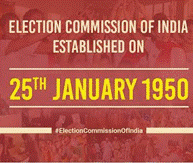
Vision:
- The Election Commission of India strives to be an Institution of Excellence by enhancing active engagement, participation; and strengthening electoral democracy in India and globally.
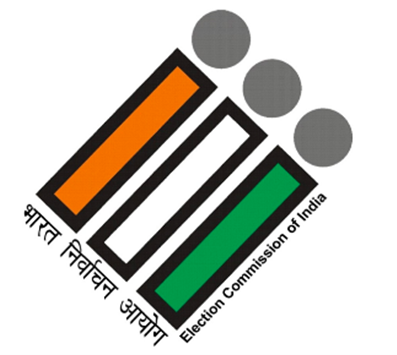
Mission:
- The Election Commission of India maintains independence, integrity, and autonomy; ensures accessibility, inclusiveness, and ethical participation of stakeholders; and adopts the highest standards of professionalism for delivering free, fair, and transparent elections to strengthen trust in electoral democracy and governance.
Guiding Principles:
- The Commission has laid down guiding principles of good governance:
- To uphold the values enshrined in the Constitution, namely equality, equity, impartiality, independence, and the rule of law in superintendence, direction, and control over electoral governance.
- To conduct elections with the highest standard of credibility, freeness, fairness, transparency, integrity, accountability, autonomy, and professionalism.
- To ensure the participation of all eligible citizens in the electoral process in an inclusive, voter-centric, and voter-friendly environment.
- To engage with political parties and all stakeholders in the interest of the electoral process.
- To promote awareness about the electoral process and electoral governance amongst stakeholders, namely voters, political parties, election functionaries, candidates, and people at large, and to enhance and strengthen confidence and trust in the electoral system of this country.
- To develop human resources for effective and professional delivery of electoral services.
- To build quality infrastructure for the smooth conduct of the electoral process.
- To adopt technology for improvement in all areas of the electoral process.
- To strive for the adoption of innovative practices for achieving excellence and the overall realization of the vision and mission.
- To contribute towards the reinforcement of democratic values by maintaining and reinforcing the confidence and trust of the people in the electoral system of the country.
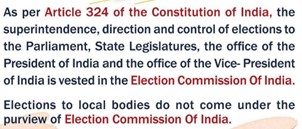
Composition:
- The Election Commission comprises the Chief Election Commissioner and such other Election Commissioners as appointed by the President.
- Initially, it functioned as a single-member body but later expanded to a multi-member body with three Election Commissioners in 1993.
- The appointment, tenure, and service conditions of the Commissioners are determined by the President.
- They hold office for a term of six years or until the age of 65, whichever is earlier, and enjoy similar privileges and benefits as judges of the Supreme Court.
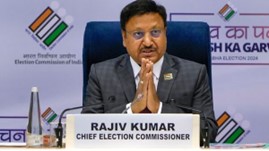
Independence:
- To ensure the autonomy and impartiality of the Election Commission, Article 324 provides safeguards such as security of tenure for the Chief Election Commissioner, removal mechanisms similar to those of judges of the Supreme Court, and protection against adverse variations in service conditions.
- While these provisions aim to maintain the Commission's independence, there are areas for further strengthening to enhance its effectiveness.

Powers and Functions:
- The Election Commission exercises a wide range of powers and functions, including administrative, advisory, and quasi-judicial roles:
- Determining the delimitation of territorial areas for electoral constituencies.
- Compiling and revising electoral rolls.
- Issuing notifications for the conduct of elections.
- Granting recognition to political parties and allocating election symbols.
- Adjudicating disputes related to party recognition and symbol allocation.
- Appointing officers to investigate electoral disputes.
- Formulating codes of conduct for parties and candidates.
- Regulating media coverage of party policies during elections.
- Advising the President and Governor on matters of member disqualifications.
- Suspending polls in cases of irregularities or violence.
- Requesting the requisitioning of staff necessary for elections.
- Overseeing the election machinery to ensure fairness.
- Providing guidance on elections in states under President's rule.
- Registering political parties and granting national or state party status based on performance.
- The Election Commission is supported by deputy election commissioners and other staff, both at the central and state levels, to facilitate its functioning effectively.
- At the district level, the collector serves as the district returning officer, overseeing polling booth arrangements and appointing presiding officers.
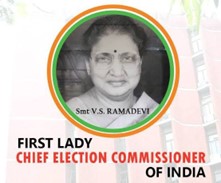
Deployment of Election Machinery
- A mammoth taskforce of over twelve million polling personnel and civil police forces are deputed to the Commission during election periods.
- It also ensures the effective control, supervision, and discipline, essential for conducting nationwide general elections.
Budget & Expenditure
- The Commission's Secretariat operates on an independent budget, finalized through consultations with the Finance Ministry.
- Expenditure for election conduct is shared among the Union Government, State Governments, and Union Territories, with provisions for equal sharing in simultaneous elections.
Ensuring Independence from Executive Interference
- The Election Commission functions independently, deciding election schedules, polling station locations, and all related matters without executive interference.
- This autonomy ensures fair and impartial conduct of elections.
Political Parties Engagement with the Commission
- Registered political parties undergo organizational elections periodically, overseen by the Election Commission, to ensure inner-party democracy.
- Recognition at state and national levels is based on poll performance.
- And the Commission resolves disputes within recognized parties.
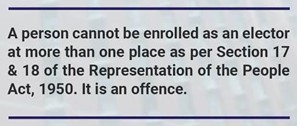
Advisory and Quasi-Judicial Functions
- The Commission advises on post-election disqualifications of sitting members of Parliament and State Legislatures.
- It also decides on disqualifications for corrupt practices and can reduce or remove disqualifications as per the law.
- Its opinions are binding on the respective authorities.
Judicial Review and Election Petitions
- Challenges to parliamentary and state legislature elections are adjudicated by the High Court and the Supreme Court through election petitions.
- The judiciary's intervention is restricted once the election process begins.
- It is allowing review only through election petitions after the results are declared.
Media Policy and Transparency
- The Commission maintains a comprehensive media policy, conducting regular briefings for both national and international media during elections.
- Media representatives are granted access to polling stations and counting centers, ensuring transparency in reporting.
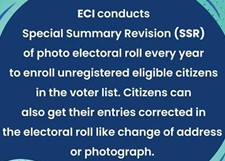
Voter Education and Participation
- Through Systematic Voters' Education & Electoral Participation (SVEEP), the Commission educates citizens on the electoral process to enhance awareness and participation.
- It aims to increase voter registration, turnout, and informed voting.

International Cooperation and Leadership
- As a leading democracy, India, through the Election Commission, promotes participatory democracy worldwide.
- It collaborates with international election management bodies, sharing best practices and capacity-building initiatives.
New Initiatives for Electoral Integrity
- The Commission introduces various initiatives to enhance electoral integrity, such as utilizing state-owned electronic media for political broadcasts, combating criminalization in politics, and simplifying procedures for candidates.
- These measures uphold the Model Code of Conduct, ensuring a level playing field for contestants.
Transparency in Candidate Details
- In accordance with directives from the Supreme Court, the Election Commission mandates the publication of details regarding candidates with pending criminal cases by political parties.
- This initiative aims to enhance transparency and accountability in the electoral process, ensuring that voters have access to crucial information about the backgrounds of candidates.

Postal Ballot Option for Absentee Voters
- Amendments to the Conduct of Elections Rules, 1961, allow for optional postal ballot facility for absentee voters.
- Eligible individuals, including those employed in essential services, senior citizens, persons with disabilities, and COVID-19 affected persons, can exercise their voting rights through postal ballots.
- This initiative promotes inclusivity and accessibility in the electoral process.
Leave a Reply
Your Comment is awaiting moderation.


